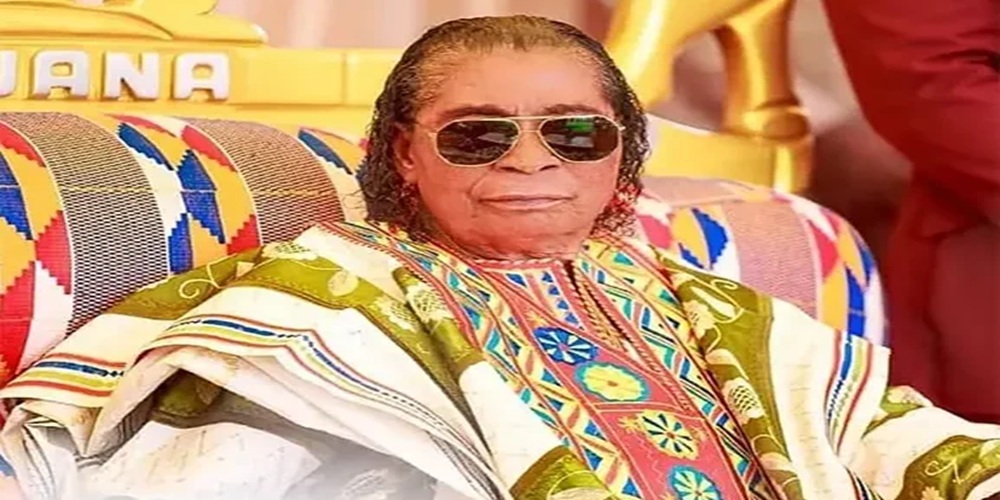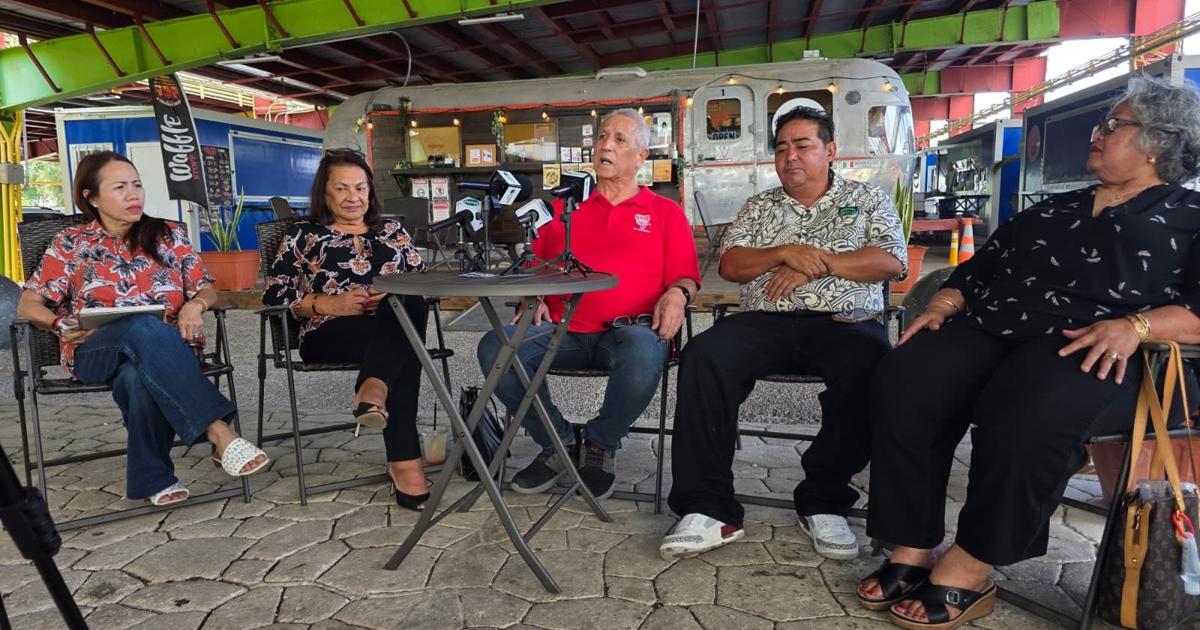By Praisebell Larbi
Copyright zedmultimedia

By Praisebell Rosemond Larbi
Apostle Dr Kwadwo Safo Kantanka, Ghana’s industrial trailblazer, who produced vehicles and futuristic inventions such as voice-controlled televisions and vehicles died on Thursday, September 11, 2025, at the age of 77.
He left a profound gap in Ghana’s industrial landscape sparking urgent calls to sustain his vision of self-reliant innovation. The news of his passing sent shockwaves across the nation, marking the loss of a man whose impact stretched far beyond founding the Kristo Asafo Mission.
He embodied a rare combination of preacher, inventor, industrialist, and philanthropist. His name became a household fixture in Ghana thanks to groundbreaking innovations considered years ahead of their time.
Although his spiritual ministry attracted thousands, it was his engineering and industrial achievements that made him a true national icon. One enduring legacy that will outlive him is his relentless determination to defy the belief that Africans must depend on imported technology. Instead, he charted a bold path of independence and creativity, a philosophy that earned him the revered title of “African Star.”
Perhaps his most celebrated achievement was establishing the Kantanka Automobile Company Limited, which introduced a range of made-in-Ghana vehicles, from four-wheel-drive SUVs and sturdy pickups to sleek saloon cars. At a period when many doubted the feasibility and quality of locally manufactured automobiles, Apostle Safo proved that Ghana possessed the skill, talent, and ingenuity to produce vehicles that met international standards.
His cars became more than a mode of transport, they were enduring symbols of national pride, innovation, and possibility. He further expanded his scope into the production of armoured vehicles, humanoid robots, and other cutting-edge machines, reinforcing his reputation as a fearless innovator and widening his imprint in engineering and technology. His passing leaves a monumental challenge: to carry forward the daring vision that defined his remarkable life.
A Multifaceted Trailblazer
Apostle Safo defied easy categorisation. He was simultaneously a Christian minister, inventor, industrialist, agriculturist, educator, and philanthropist. Though thousands flocked to his Kristo Asafo Mission for spiritual guidance, it was his audacious engineering and industrial feats that earned him the nickname ‘African Star.’
From the late 1970s onward, he pushed boundaries many thought impossible. While Ghana wrestled with import dependency, Apostle Dr Safo believed the country and Africa at large could build its own machines, cars, and household gadgets. His church became an incubator for self-reliant innovation, marrying faith with science in a way that startled traditionalists and inspired the young.
Building a Culture of Self-Reliance
Born in 1948 in Bekwai in Ghana’s Ashanti Region, Apostle Safo’s beginnings were modest. After answering a spiritual call in the late 1960s, he founded Kristo Asafo Mission. Unlike most churches of the era, Kristo Asafo championed community empowerment and technological creativity alongside prayer.
He preached that God endowed Africans with the same inventive capacity as anyone else. This message, equal parts sermon and science lesson, galvanised young artisans and engineers. By the 1980s, Apostle Safo was not just a religious figure but a national symbol of ingenuity, proving that Africans could break free from technological dependence.
Kantanka Automobile: A Dream on Wheels
Apostle Safo’s genius went beyond the automobile industry. He developed innovations that seemed years ahead of Ghana’s technological curve. He is said to have built a television set that responded to voice commands and sound, long before ‘smart TVs’ became the order of the day. He also produced appliances that sensed waves and movements, showcasing his ability to blend science with creativity.
Mechanical inventions ranging from military-style vehicles to robotic machines were showcased at his annual technology exhibitions. These feats cemented his reputation as a visionary, one who merged faith and science in ways that left many in awe.
Perhaps Apostle Safo’s most public triumph was the establishment of Kantanka Automobile Company Limited, Ghana’s first wholly indigenous vehicle brand. He unveiled the Kantanka Saloon car in 1998, a watershed moment that showed locally designed vehicles could meet international standards.
Over time, the brand introduced an array of models Onantefo SUVs, Obrempong limousines, Nsoromma, Daasebre, Otumfo, Omama, and Amoanimaa, each reflecting his commitment to style and functionality. Some featured voice- or watch-activated ignitions, years before such features became commonplace in global markets.
Critics noted that certain models used imported knock-down kits, yet Apostle Safo’s accomplishment remained historic: a Ghanaian auto brand competing with global manufacturers, igniting national pride and proving industrial dreams were attainable.
The Kantanka Ghana Tech Expo
Beyond the innovations, Apostle Safo established the Ghana Tech Expo, which is a yearly technology and innovation exhibition. Held mostly in December at the Apostle Safo School of Arts and Sciences in Accra, the event showcases locally developed technologies ranging from automobiles, agricultural machinery, renewable energy systems, and electronics to herbal and pharmaceutical products. It serves as a platform for Kantanka Automobile to unveil new vehicles, while also giving space for young innovators and entrepreneurs to display their creations. The fair promoted indigenous innovation and self-reliance in science and technology, encouraging a ‘Can-Do spirit’ among Africans.
Beyond the displays, it fosters networking, investment opportunities, and cultural pride, while highlighting how traditional knowledge can blend with modern science. However, challenges remain in achieving widespread acceptance of local innovations and scaling them up for mass production and industrial impact.
Training the Next Generation
In 1997, he founded the Apostle Safo School of Arts and Sciences, a hub for practical education in applied science, mechanics, and engineering. Here, aspiring engineers and artisans learned to merge creativity with technical skill. Graduates testify that the school was more than a learning centre; it was a laboratory of ideas, nurturing innovators who continue to drive Ghana’s technology sector.
Despite his industrial focus, Apostle Safo remained a committed philanthropist. Through Kristo Asafo, he sponsored feeding programmes, scholarships, and health initiatives, regularly donating to hospitals and disadvantaged communities. His generosity reinforced his belief that technological progress must serve society, not merely industry.
Challenges of a Lone Innovator
Despite the many innovations of the late Apostle Safo, the question many ask is whether Ghana supported him enough. For all his brilliance, Apostle Safo’s journey was not without challenges. Ghana’s market, saturated with foreign automobile brands, made penetration difficult. Many Ghanaians, accustomed to imported products, were slow to embrace Kantanka cars. Amid the limited state support, many called for a governmental intervention that would ensure that his innovations became marketable and patronised by many Ghanaians.
Although some concessions were made by successive governments, they were never enough. Many believe his industrial exploits were just a one-man crusade against an entrenched culture of import dependency. Despite these challenges, he remained resolute, continuing to innovate and inspire. His perseverance revealed the structural gaps that have long hindered Ghana’s industrialisation drive, a gap he tried to fill almost single-handedly.
An Industrial Vacuum That May Never Be Filled
Although he may have trained many young ones, with his passing, Ghana faces a sobering question: who will step into Kantanka’s shoes? His vision was not just about building cars, machinery, and exploits in agriculture, education, and health. It was also about changing mindsets. He embodied the idea that Africans could design, innovate, and compete globally.
His death leaves behind an industrial and innovation vacuum that will be difficult to fill. Apostle Safo was not merely an entrepreneur; he was a movement. His legacy challenges Ghana to rethink its development model, shifting from import dependency to value addition and self-reliance
A Legacy That Demands Continuation
Though many of Apostle Safo’s creations never reached mass production, his true legacy lies in the audacity of his vision. He shattered the myth that invention belonged solely to Europe, America, or Asia. He insisted that technological self-reliance is both possible and necessary for Africa’s future.
His passing leaves a sobering question: Who will fill his shoes?
While he trained numerous apprentices, sustaining his ethos requires deliberate national effort, investment in research and development, protection for local manufacturers, and education systems that value creativity as highly as consumption.
The Road Ahead
Carrying forward Apostle Safo’s dream means addressing the very barriers he confronted:
• Financing and policy support for local innovators.
• Consumer confidence in homegrown products.
• Integration of traditional knowledge with cutting-edge science, a hallmark of his exhibitions.
If Ghana can harness these lessons, Apostle Safo’s vision of a technologically independent Africa may yet flourish.
Conclusion: The African Star Still Shines
Apostle Dr. Kwadwo Safo Kantanka was more than a man; he was a movement, a living argument that Africans can design, build, and innovate on their own terms. From voice-controlled televisions to indigenous automobiles and community-driven expos, he demonstrated that faith and science can advance together.
As Ghana mourns this remarkable industrial and innovation giant, his challenge endures:
Dare to believe in African ingenuity.
Dare to create, not just consume.
Dare to build a future powered by our own hands.
His earthly journey may have ended, but the flame he lit continues to burn guiding a continent toward the technological self-reliance he so passionately envisioned.



